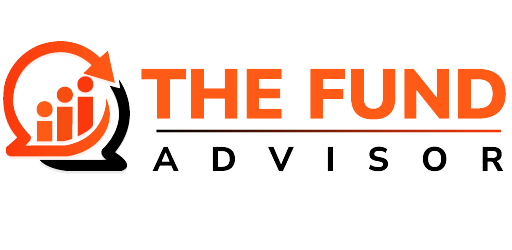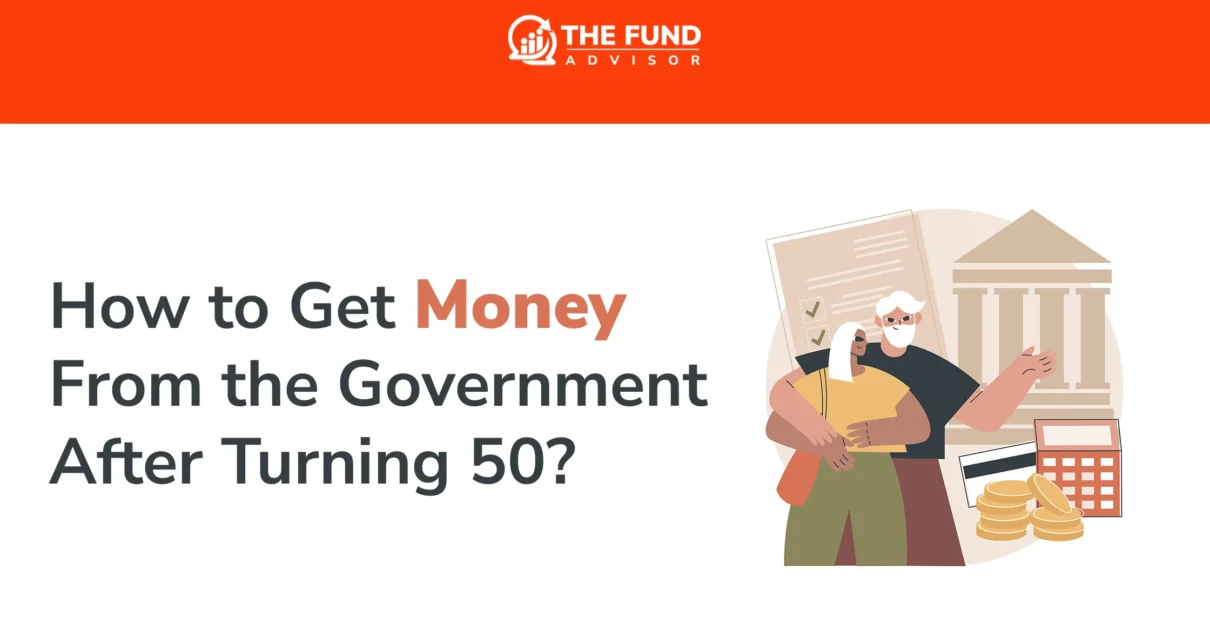The age of 50 years seems like a boundary; after crossing it, the need for planning for financial stability is maximum. Whether you’re planning for retirement or seeking additional financial support from government schemes, there are multiple ways to secure a decent monthly income. With this problem in mind, looking for the question, how to get money from government after 50, seems valid.
From social security benefits to complementary programs, understanding all these is essential to living a good life after the age of 50. In the time where the income sources are limited. Having assitance programs and support that fulfills long-term needs is the best thing.
Government Options For People Over 50
Planning for the future is always important, but after reaching 50, it becomes essential to think about future finances and healthcare. This is because with age, the ability to do work efficiently reduces, and with this, the professional income sources also get reduced. In this case, decent financial help from the government and other programs can remove a significant amount of the burden from one’s shoulders.
Thankfully, the US government offers a variety of programs and plans to help individuals over the age of 50. Plans that include almost every aspect of need that a person may require.
- Financial Assistance : These programs provide direct financial support to individuals in the form of monthly payments.
- Healthcare : This is one of the most common aspects that is covered using various retirement plans and government money for seniors over 50 schemes.
- Tax Relief : Many policies reduce the tax burden that providing high relief from financial burden.
- Housing : In the USA, there are several options for grants and housing assistance for senior citizens available that improve safety and accessibility.
- Employment : Training and job placement programs like SCSEP support older workers.
- Veterans Benefits : Additional financial and healthcare aid is available for veterans.
There are various services and plans available that cover all the requirements of an individual. Making the usage highly affordable and accessible to them.
How To Get Money from Government After 50?
As mentioned above, there are various areas in which individuals can get financial assistance from the government after the age of 50 years. Individuals after crossing this age need to plan for their future issues and connect with the best plans of their choice.
Financial Assistance And Income Support
Financial assistance is one of the most important needs that a person seeks. The government provides many income support programs for retired individuals to help with their daily expenses.
-
Social Security Benefits
It is the widely used retirement income plan that is directly administered by a government authority, the Social Security Administration (SSA). Social Security provides monthly income to individuals based on their work history and earnings. The eligible person can start claiming the benefits from the age of 62 years. But to get full benefits, it is advised to withdraw or claim after the age of 65 or 67 years.
The Social Security Administration also provides Disability Insurance (SSDI) to people who become disabled before the retirement age. Also, the surviving spouses or family members can get the entitled income for their deceased working member.
-
Supplemental Security Income (SSI)
This is a deferral income program that helps senior citizens over 65 years with a monthly income stream. It also helps people who are blind or disabled, who have very limited resources to survive. It does not depend on work or earning history like the Social Security benefits. This plan is only designed to support people with real financial needs. To get this, you need to contact the Social Security Administration or visit the site ssa.gov.
-
SNAP (Supplemental Nutrition Assistance Program)
SNAP helps people with low and limited income buy nutritional food. This program helps in extending the food budget to improve their overall health and well-being. Many people often wonder how to get money from government after 50, this is possible, but with proper planning.
-
State And Local Financial Assistance
Some state and local programs are also available that provide significant money help to people who need it. Plans like the Low Income Home Energy Assistance Program (LIHEAP), State Supplement Programs, Emergency Assistance Grants, etc, provide direct cash support to families who are eligible.
Along with government support, many seniors also explore affordable housing options such as senior cottages for rent that provide comfort, independence, and community living.
Healthcare Programs
There are many healthcare programs provided by the government. These are designed to fit with unique medical needs of eligible individuals. From doctor’s visits to surgery, many solid expenses can be managed with these plans.
-
Medicare
Medicare is a federal health insurance program that provides medical help to eligible individuals. It can also be used to cover people’s medical expenses with certain disabilities. Generally, there are four Medicare plans such as Hospital insurance (Part A), Medical insurance (Part B), Medicare Advantage (Part C), and Prescription drug coverage (Part D). This plan covers all medical and healthcare needs for an individual, including transportation facilities, sometimes.
-
Medicaid
It is a federal-state health program offered to low-income individuals. Medicaid provides long-term care services. People with low income and fewer resources are generally eligible for this health care plan. Sometimes, it may cover nursing home care and some in-home services, which Medicare does not.
-
Supplemental Programs and Services
These types of healthcare assistance programs are offered by state governments or some communities to provide no-cost or low-cost clinics, prescription assistance, and preventive services. Plans like Program of All-Inclusive Care for the Elderly (PACE) provide care for seniors, with facilities of both Medicare and Medicaid services.
To apply for these benefits, you can visit your nearest Medicare or Medicare centre.
Tax Benefits And Credits For Seniors
Tax implications are some extra expenses that may reduce the income significantly if not managed properly. The government provides various tax relief and organization systems to prevent this income reduction.
-
Property Tax Relief
Many states’ policies offer specific tax benefits to people over the age of 50 years who are asking, How to get money from government after 50. These benefits substantially reduce the taxation of your annual tax bill. Plans like Homestead Exemptions (Program for Texas), Circuit Breaker Programs, etc, which are state-based programs for citizens.
-
Income Tax Benefits
There are some tax credit programs, like the Earned Income Tax Credit (EITC), which reduce the annual tax bracket. You could qualify for this if you earned income and meet income limits. Seniors over the age of 65 can get a higher standard deduction on annual federal taxes.
Housing Assistance
Owning a house is a dream of many families and individuals. The government offers various housing assistance programs that enable safe and affordable housing.
-
Affordable Housing Programs
Programs like Section 202 Supportive Housing provide housing assistance to seniors over the age of 62. There are some other plans, such as the Section 8 Housing Choice Voucher Program and Public Housing Authorities (PHAs), that provide housing help to people over the age of 50.
-
Rental Assistance
If you are over the age of 50 years and have limited income resources, then you can get rental housing assistance from the state government. Many PHA program provides housing help to senior citizens or people with disability.
-
Home Improvement And Accessibility Grants
With aging, the requirements in the home for mobility and health needs change. In this context, living with the same issues can affect security and independence. For this, some federal and state government offers grants, loans, or subsidies to assist adults over 50. These are available for making some modifications, like installing ramps, widening doors, lighting, etc.
Early Planning for Financial Stability After 50
For seniors, especially after the age of 50, financial planning becomes more important than ever. It is all about creating reliable and sustainable resources to ensure a safe, long-term livelihood. This is because at this stage, the need for efficient support is at its peak. Therefore, proactive financial planning becomes essential to avoid financial crises.
One of the most important aspects that comes into play is budgeting. A smart budget and expense planning is crucial to get the most out of the assistance programs like Apartments for senior citizens. There are some ways to do this. Reducing unnecessary expenses and clearing debts during working life are some important ways. Also, try to get the affordable services for seniors which reduce the daily expense.
Also, the financial planning comes with a strategic retirement planning using savings accounts like 401(k), Individual retirement account, etc. They ensure long-term fund growth over time. Pursuing effective investment options like stocks, mutual funds, etc., is also an important part of this aspect. Additionally, there are some government-backed investment options, such as Treasury securities and bonds, that provide a stable and low-risk return option.
At the end, building emergency funds is a crucial factor. For a sudden need for funds, these sources can help in preventing the depletion of retirement savings.
Key points in financial planning:
- Always review your retirement plans and documentation on a frequent basis.
- Try to pay off the high-interest of major debts before entering this age group.
- Create an efficient account only for emergency funds.
- Understand various government programs to get the best options.
- Take advice from expert financial advisors to avoid any mistakes.
How To Maximize Your Government Benefits After 50?
So, as we have understood, how to get money from the government after 50, let’s know how to maximize these benefits.
- Always know your eligibility for the programs of your choice. With proper documentation, you can avoid any misleading. The qualification is based on age, income, employment status, and health. Some benefits may require extra criteria to be fulfilled.
- You can use the online resources available, like Benefits.gov, Medicare.gov, or your state-provided departments, where you can not only apply but also get complete information.
- Always consult an expert financial advisor for any such decision. The one who can help you help in making pre-informed choices to get the best out of these benefits.
Conclusion :-
If it is possible to receive income support from the government, then this can help in managing the expenses effectively without draining the savings. Many governments offer programs that provide help in financial security, healthcare, housing, and employment. Whether you need medical insurance or immediate financial support, these plans help you in such a way as to remove the unwanted burden.
How to get money from government after 50? By understanding the eligibility and benefits of these programs, you can ensure a secure future living with confidence and peace of mind. Seniors can get highly affordable and sustainable services that offers peace of mind.
Frequently Asked Questions
Is there any free money I can get from the government?
The government provides various income programs, like social security, supplemental benefits, etc., to offer some income for senior citizens. There are some grants and credits also available for people with low incomes to manage their household expenses.
Do you get money from the government when you’re old?
No, this statement is not completely true. Because there are some programs like Supplemental Social Income, which provides a fixed stream of income to individuals with very low income. For this, the individuals need to qualify for the criteria of having an income under $2000 monthly to get these benefits.
At what age do you get 100% of your Social Security?
After the age of 66 or 67 years, you become eligible to get your full social security benefits income. You can start collecting your SSB payments after turning 62, but this will be considered as early claiming and prevent you from getting the full benefit amount.





